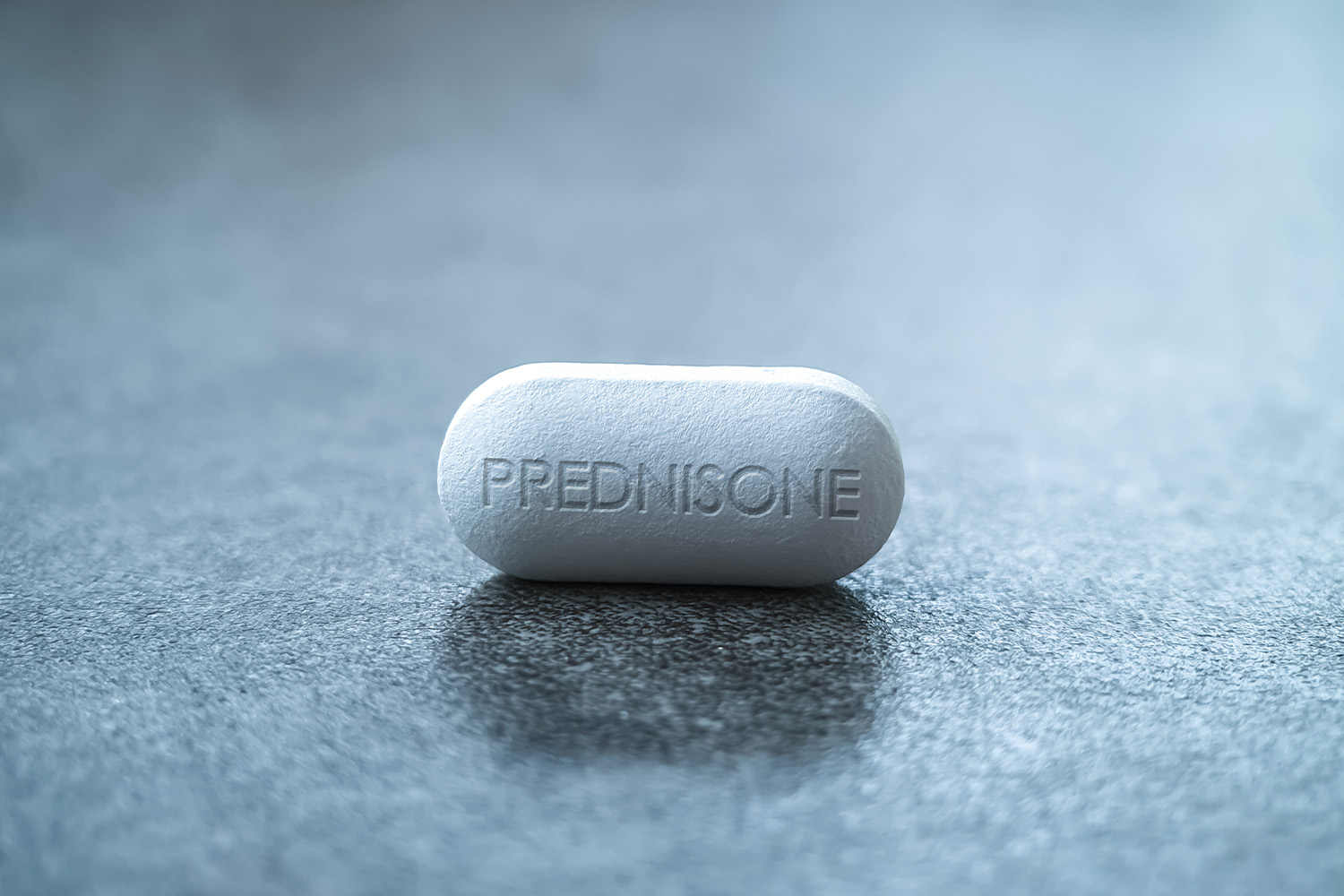Your veterinarian has prescribed prednisone for your dog, and you want some additional clarification on what exactly it is and what it does. No worries, we are here to clarify some of your questions and get you more familiar with this new prescription. If your dog has an inflammatory condition, itchy and irritated, or has Addison’s disease, they might be prescribed prednisone.
Keep reading to learn more about prednisone and how it can impact your dog:
What Is Prednisone?
Prednisone is a synthetic corticosteroid similar to cortisol but much more potent, having a quicker and more immediate effect. Corticosteroids help to manage inflammation and have anti-inflammatory properties. Basically, it’s a steroid that works to help your dog feel better in the now and down the line.
Prednisone can be administered orally, topically, or by injection. When administered, the liver takes it and processes it into prednisolone. If your dog has liver disease, your vet might opt for synthetic prednisolone to reduce hepatic stress on the dog.
What Are the Short-Term Side Effects of Prednisone?
Prednisone is a commonly prescribed medication for a reason: it’s safe and effective. But that doesn’t always mean that your dog will avoid any potential side effects of short-term use. In general, these side effects aren’t usually too debilitating; they might just require a bit more love and attention to help your dog adapt.
Some common side effects of prednisone are:
- Increased thirst
- Behavioral changes
- Increased urination
- Panting
- Increased hunger
Most of the time, your dog will return to feeling normal within a few days of coming off the medication. If you have any concerns about your pet’s behavior, it’s essential to reach out to a professional with your questions. This just ensures your pet’s safety and your peace of mind.
Uses of Prednisone in Dogs
Prednisone is prescribed to dogs for a variety of reasons. It’s usually prescribed as an immunosuppressant or anti-inflammatory medication. Prednisone is known to be used as replacement therapy for endocrine disorders like Addison’s disease. Replacement therapy means that you’re supplying the body with what it’s lacking, maybe hormones or nutrients.
It can also treat abnormal cells, anaphylactic shock, or spinal cord trauma. Some of the other reasons might include:
- Itching
- Hives
- Allergic reactions
- Inflammatory bowel disease (IBS)
- Asthma
- Arthritis
- Kidney disease
- Nervous system disorders
- Autoimmune diseases like lupus and autoimmune hemolytic anemia
Dosage for Dogs
The dosage for prednisone is based on your dog’s weight and condition. You shouldn’t be giving any more than what is prescribed and give it to your pup on a strict schedule.
If you were to give a higher dose by accident, you could lead to an overdose, which causes serious side effects:
- Seizures
- Vomiting
- Diarrhea
- Lethargy and muscle weakness
- Fever
- Increased heart rate
- High blood pressure
If any of these occur after administering your dog prednisone, you should take them to a veterinarian immediately.
Long-Term Effects of Prednisone in Dogs
Most pets will be put on prednisone for a short period of time, but that’s not always the case. The longer that your dog has to be on prednisone, the more likely for side effects to start popping up. Some dogs need to be on it for up to four months or longer, but your veterinarian will likely monitor the situation extra carefully if this is the case.
If your dog has a serious health condition, like IBS or arthritis, you might want to ask your veterinarian about other options. Long-term use of prednisone can lead to a variety of side effects. When there is a surplus of prednisolone in the body, it can lead to liver dysfunction and even Cushing’s disease.
If you have had your dog on prednisone for some time, it’s advised that you don’t just let them quit it cold-turkey. Instead, your vet will advise you on how your pup should taper off. This method can help prevent any adverse side effects or withdrawal symptoms.
For example, your dog could possibly have a suppressed immune system after relying on prednisone for so long, so stopping it quickly can disrupt any healing that’s being done.
Is It Safe?
There is always a risk with any medication. The best way to ensure that your dog is safe and comfortable is to monitor their behavior and ask questions when they arise. You’ll know better than anyone else if your dog is in need of a check-up or if they are just extra tired that day.
Vets typically recommend avoiding prednisone if your dog has viral infections, systemic fungal infections, ulcers, and a few others. Make sure to consult your vet before using prednisone if your dog has any of these medical conditions.
In addition, prednisone has several drug interactions, including:
- CBD supplements
- Non-steroidal anti-inflammatory drugs (NSAIDs) like aspirin and carprofen
- Phenobarbital
- Cyclosporine
Feel Better Soon
When your questions and concerns do arise, you’ll want a friendly face available at any time of the day or night. Say goodbye to 2 AM frantic Google searches and hello to AskVet for the immediate and professional response you need.
The purpose of AskVet is to provide pet parents with 24/7 assistance so that they can put their worries to ease. We get that not every question or action requires a trip to the vet, but sometimes you still want answers in a timely fashion. AskVet pairs you with Certified Pet Lifestyle Coaches™, who can help answer questions about any pet members of your family (fish, lizards, dogs, cats, and more!).
Of course, if there is anything completely out of the ordinary that’s causing you to panic, you should call the emergency vet and get your dog help. AskVet is here to help your pet to a healthier lifestyle with a 360° Lifestyle Plan, individualized to each fluffy, feathery, or scaly member of your household.
Schedule an appointment with a CPLC™ today for just $9.99/month and access our wide range of experts, resources, community, and more.
Sources:
Management Of Hypoadrenocorticism (Addison’s Disease) In Dogs | NCBI
Prednisone-Induced Morphologic And Chemical Changes In The Liver Of Dogs | SAGE Journals





